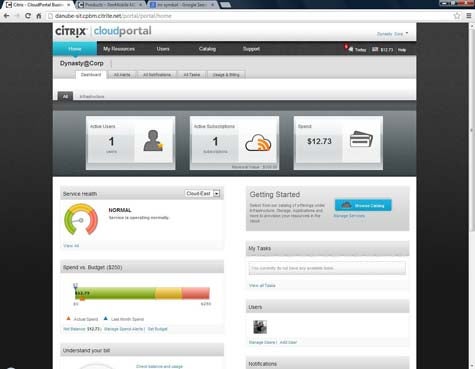While it’s not clear who benefits most from self-service IT, it is a trend that is starting to gain traction in the era of the cloud.
On the one hand, self-service IT allows end users to access a pre-defined set of IT resources without having to wait for the internal IT department to act on a request. At the same time, self-service IT frees IT people, many of whom lack personal skills, to concentrate on tasks that add more value to the business.
Citrix became the latest vendor to embrace this trend with the release today of CloudPortal Business Manager 2.0, an update to a platform for managing the delivery of cloud services. It adds support for cloud applications in addition to infrastructure-as-a-service (IaaS) platforms.
According to Tom McCafferty, senior director of product marketing for Citrix, CloudPortal Business Manager gives IT organizations access to software development kits and application programming interfaces that they can use to connect the portal to any type of cloud service. End users are then directed to the portal to access a catalog of those services, giving the IT organization control over what services are used without having to manually provision access every time an end user makes a request for a particular cloud service.
For IT organizations, that approach provides a solution for monitoring and metering access to cloud services from a compliance perspective, while giving end users the ability to quickly access a service without having to wait days, sometimes even weeks, for IT to provision it.
McCafferty says that when it comes to deploying cloud services using a self-service portal, IT organizations would be well-advised to take a measured approach. Rather than loading up a catalog with every imaginable cloud service, organizations should add services over an extended period of time to make sure they are comfortable with how those services are being used. After all, most cloud services are priced based on usage, which without proper supervision can easily spin out of control.




